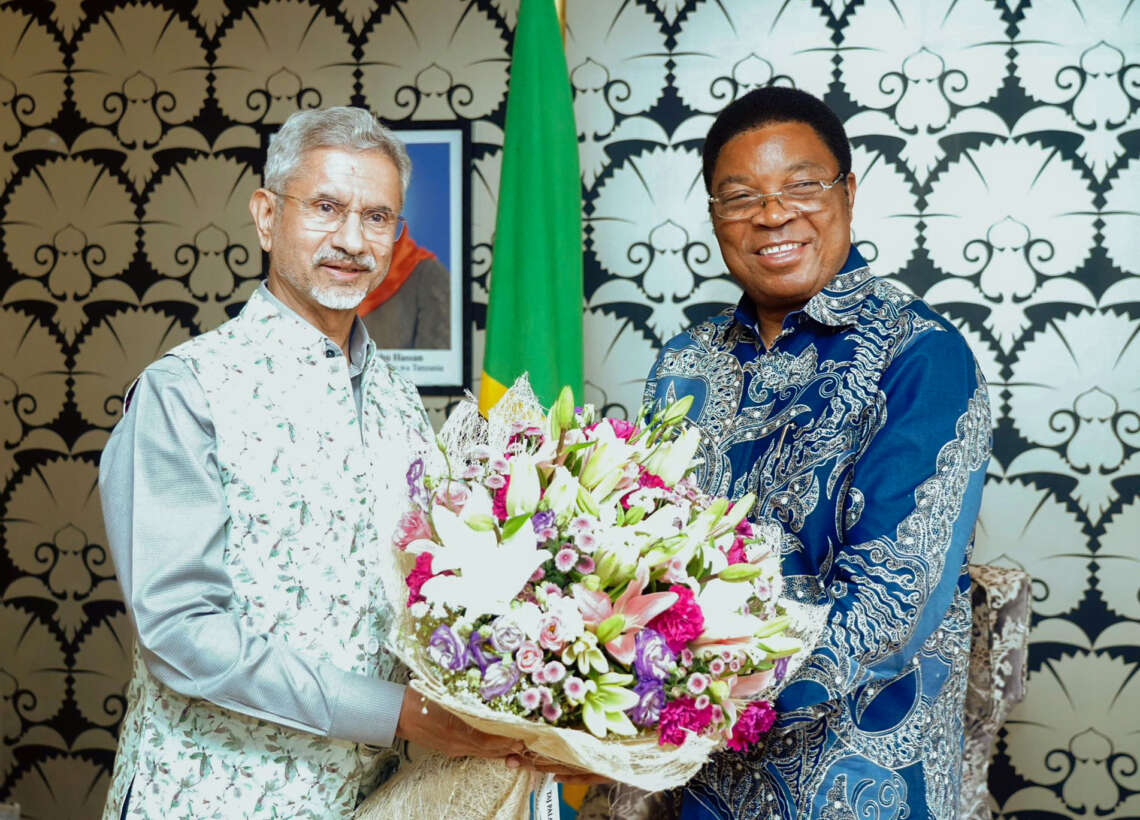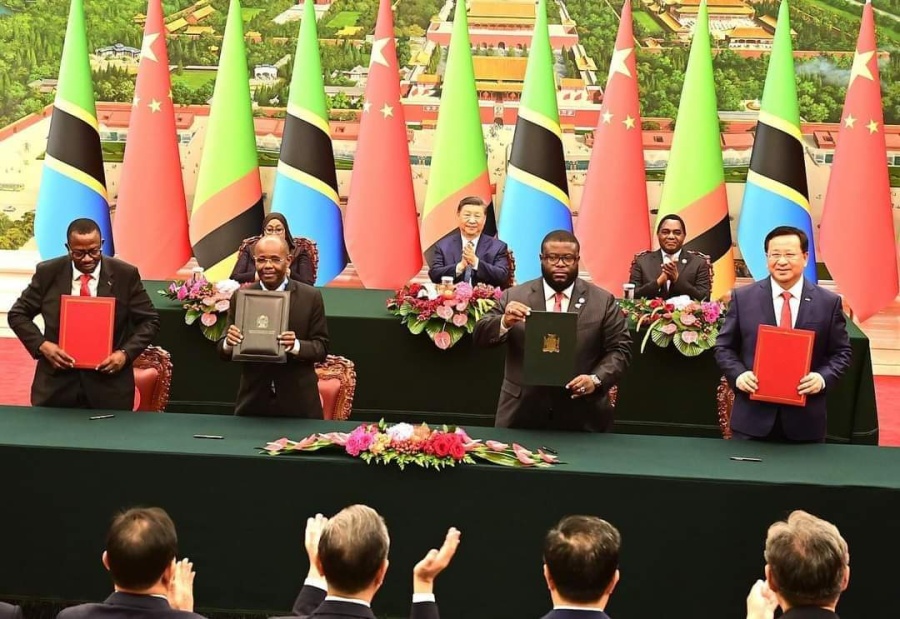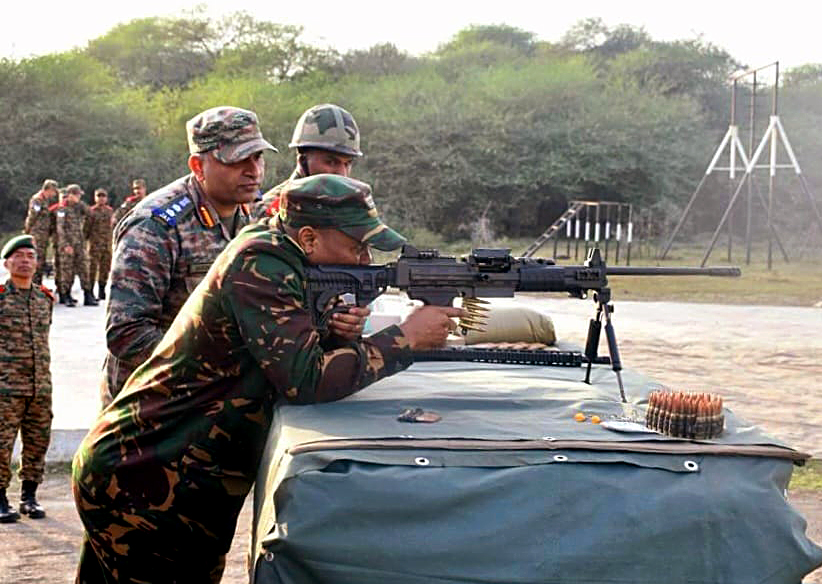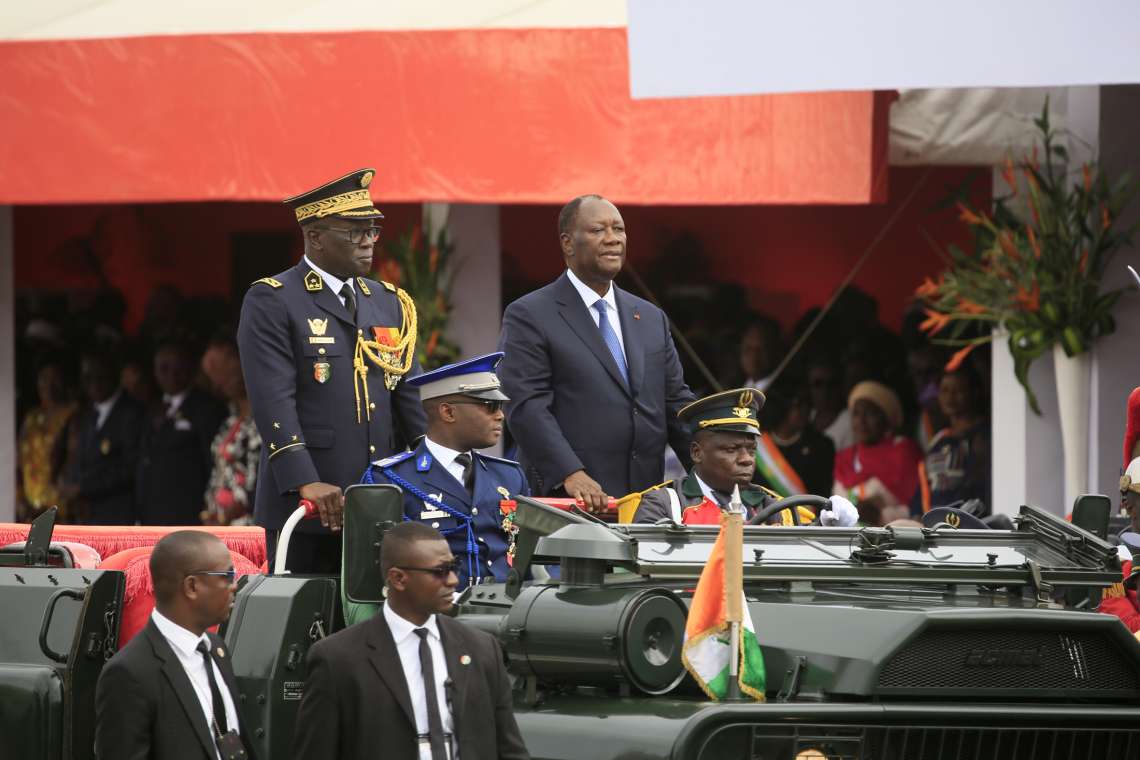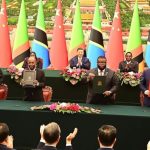Tanzania’s President Samia Suluhu Hassan faces mounting criticism over alleged human rights abuses and the stifling of dissent ahead of elections she is almost certain to win….reports Asian Lite News
Less than six months after Samia Suluhu Hassan made history as Tanzania’s first woman president in 2021, the country’s most famous cartoonist, Gado, depicted her wearing a general’s uniform beneath the caption “Dictatoress.” The cartoon, published from his base in Kenya where press freedom is greater, showed Hassan admiring herself in a mirror holding a torch — a supposed symbol of liberty — though her reflection revealed a spiked club.
The image captured the contradiction that has come to define Hassan’s presidency. Initially hailed for promising to relax the repressive politics of her predecessor, John Pombe Magufuli, Hassan is now accused by critics and human rights groups of tightening the state’s grip on opposition parties, civic organisations, and the media. As she campaigns for her first full mandate in elections scheduled for 29 October, hopes that she would usher in a more open era appear increasingly misplaced.
Amnesty International this week warned that repression in Tanzania has “intensified,” citing arbitrary arrests, enforced disappearances, and even extrajudicial killings. The organisation’s statement paints a grim picture of a government turning against its citizens as it seeks to secure electoral dominance for Hassan’s ruling party, Chama cha Mapinduzi (CCM).
CCM, in power in one form or another since independence in 1961, is one of Africa’s longest-ruling parties and retains close ties with the Chinese Communist Party. Although Tanzania has never experienced a peaceful transfer of power between rival parties, the country has long prided itself on political stability — a trait now being tested by growing dissent and the ruling party’s apparent intolerance of competition.
The opposition party Chadema has emerged as the most credible challenger to CCM’s dominance, led by Tundu Lissu, a popular figure who survived an assassination attempt in 2017. But Lissu now languishes in detention on treason charges. Chadema has refused to participate in the upcoming polls, citing a lack of electoral reforms and declaring that the process cannot be free or fair. Its boycott led to disqualification by the national electoral commission, effectively removing any serious challenge to Hassan’s re-election bid.
Another potential rival, Luhaga Mpina of the Alliance for Change and Transformation-Wazalendo, has also been barred from running, accused of breaching his own party’s constitution. With only minor candidates remaining, Hassan appears virtually unopposed.
The US-based Armed Conflict Location and Event Data (ACLED) project predicts that Hassan’s victory is all but assured. It notes that Tanzania’s election “will follow over four-and-a-half years of sustained repression by a CCM-controlled state that is keen to avoid the electoral pressures faced elsewhere in Africa.” The organisation said CCM had “neutered Tanzania’s opposition through administrative, legal, and extra-legal means” since its weakest performance at the ballot box in 2015.
Concerns over human rights have deepened following reports from the United Nations earlier this year. A UN panel of experts said it had verified more than 200 cases of enforced disappearance since 2019. The panel expressed alarm at “a pattern of repression” ahead of the vote, citing the recent abduction of two regional pro-democracy activists — Boniface Mwangi of Kenya and Agather Atuhaire of Uganda — who vanished in Tanzania while attending Lissu’s trial. Both later resurfaced, alleging sexual abuse before being deported.
One of the most troubling recent disappearances is that of Humphrey Polepole, Tanzania’s former ambassador to Cuba. In a resignation letter leaked online, he lamented the government’s disregard for the rule of law and spoke of losing his “peace of heart and faith.” Soon after, President Hassan stripped him of his diplomatic status. Earlier this month, he was reportedly abducted by unknown assailants in Dar es Salaam. His fate remains unknown.
The Tanzanian presidency did not respond to multiple requests for comment. A spokesperson for Hassan declined to reply to written questions.
Roland Ebole, a regional analyst for Amnesty International, said Hassan began her presidency on a promising note, easing restrictions on opposition rallies and signalling a more conciliatory approach. But she has since “been just as responsible for the government’s turn toward repression.”
“As chairperson of CCM, she cannot distance herself from these violations,” Ebole told the Associated Press. “Her position as head of state and commander-in-chief gives her direct authority over the security apparatus — and therefore the power to stop these abuses.”



